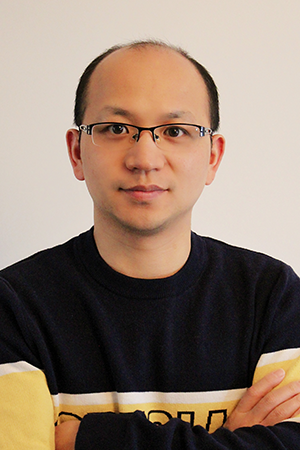
Ph.D.
Professor, Principal Investigator
Laboratory of Nutrient Sensing and Healthy Ageing
Email: jmlu@sinh.ac.cn
Tel: +86-21-54920546
Research Areas
Ageing is a process of life-long functional decline and is the major risk factor for many human diseases. Instead of treating diseases after they occur, modern gerontology research focuses on the common physiological basis of age-related diseases---the aging process itself, aiming to simultaneously delay the occurrence and progression of one or more age-related diseases, thereby extending an individual's healthspan and lifespan. This is considered as the direction of future medicine and the best measure to address the challenges of an aging population.
Nutritional intervention is the most effective way for healthy ageing. It extends healthspan and lifespan in almost all investigated organisms and improves various health parameters in humans. My laboratory investigates the three dimensions of nutritional intervention---how much to eat, what to eat, and when to eat, by studying dietary restriction, amino acid restriction, and intermittent fasting. We aim to elucidate the mechanisms by which nutritional intervention promotes healthy aging. Interestingly, different nutrient elements in the diet, such as proteins or their building blocks amino acids, fats, carbohydrates, etc., are not equal in producing beneficial effects of nutritional intervention. Amino acids are the most critical components. However, how they mediate the effects of nutritional intervention remains largely unknown.
My laboratory focuses on understanding the molecular mechanisms by which amino acids mediate healthy ageing during nutritional intervention. The research is built around the following specific aims:
1. Characterize individual amino acid effects in response to stress and ageing.
2. Study molecular mechanisms and key mediating nutrients in intermittent fasting.
3. Explore roles of amino acid translation, metabolism, and sensing in healthy ageing.
4. Investigate mechanisms to regulate amino acid sensor Sestrin and move towards its translational research.
These aims of our research are independent but well-interconnected, with an aim to develop novel nutritional interventions that can extend our healthspan and lifespan. Our work will ultimately benefit both healthy and diseased individuals, therefore ameliorating the challenges to the healthcare system posed by population ageing.
Brief Biography
2023.01- :Professor, Principal Investigator, Shanghai Institute of Nutrition and Health, CAS, Shanghai, China
2015.07-2022.11: Postdoc Fellow, Max Planck Institute for Biology of Ageing, Cologne, Germany
2014.01-2015.06: Postdoc Fellow, Institute of Cell Biology, University of Bern, Bern, Switzerland
2009.01-2013.12: Ph.D. Institute of Cell Biology, University of Bern, Bern, Switzerland
2005.09-2008.07: M.S. Shanghai Institutes for Biological Sciences, CAS, Shanghai, China
2001.09-2005.06: B.S. Nanjing University, Nanjing, Jiangsu, China
Selected Publications (*Corresponding Author)
- Anchal Srivastava#, Jiongming Lu#, Dennis Said Gadalla, Oliver Hendrich, Sebastian Groenke*, Linda Partridge*. The role of GCN2 kinase in mediating the effects of amino acids on longevity and feeding behaviour in Drosophila. Frontiers in Aging 2022;doi: 10.3389/fragi.2022.944466.
- Manh Tin Ho, Jiongming Lu, Paula Vazquez-Pianzola, Beat Suter*. α-Phenylalanyl tRNA synthetase competes with Notch signaling through its N-terminal domain. PLoS Genetics 2022;doi: 10.1371/journal.pgen.1010185.
- Paula Juricic, Yu-Xuan Lu, Thomas Leech, Lisa F. Drews, Jonathan Paulitz, Jiongming Lu, Tobias Nespital, Sina Azami, Jennifer C. Regan, Emilie Funk, Jenny Froehlich, Sebastian Groenke, Linda Partridge. Long-lasting geroprotection from brief rapamycin treatment in early adulthood by persistently increased intestinal autophagy. Nature Aging 2022;doi:10.1038/s43587-022-00278-w
- Jiongming Lu, Ulrike Temp, Andrea Mueller-Hartmann, Jacqueline Esser, Sebastian Groenke*, Linda Partridge*. Sestrin is a key regulator of stem cell function and lifespan in response to dietary amino acids. Nature Aging 2021; doi: 10.1038/s43587-020-00001-7.
(Featured in Nature News & Views: Cristal M. Hill & Matt Kaeberlein: Anti-ageing effects of protein restriction unpacked, doi: 10.1038/d41586-020-03662-x.) - Manh Tin Ho#, Jiongming Lu#, Dominique Brunssen, Beat Suter. A translation-independent function of PheRS activates growth and proliferation in Drosophila. Disease Models & Mechanisms 2021; doi: 10.1242/dmm.048132. # Equal contribution.
(Featured in the First Person interview series by Disease Models & Mechanisms.) - Jiongming Lu, Steven J Marygold, Walid H Gharib, Beat Suter. The Aminoacyl-tRNA synthetases of Drosophila melanogaster. Fly 2015;9(2):53-61, doi: 10.1080/19336934.2015.1101196.
- Jiongming Lu, Martin Bergert, Anita Walther, Beat Suter. Double-sieving-defective aminoacyl-tRNA synthetase causes protein mistranslation and affects cellular physiology and development. Nature Communications 2014;5:5650, doi: 10.1038/ncomms6650.
- Jie Liu, Wen Zhou, Shao-Shun Li, Zhe Sun, Bingzhen Lin, Yuan-Yuan Lang, Jia-You He, Xihua Cao, Tingdong Yan, Li Wang, Jiongming Lu, Young-Hoon Han, Yu Cao, Xiao-kun Zhang, and Jin-Zhang Zeng. Modulation of orphan nuclear receptor Nur77-mediated apoptotic pathway by acetylshikonin and analogs. Cancer Research 2008;68(21):8871-8880, doi: 10.1158/0008-5472.CAN-08-1972.


